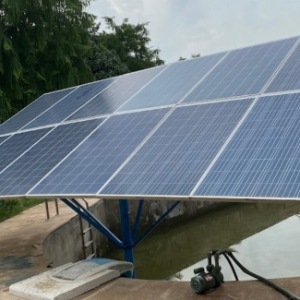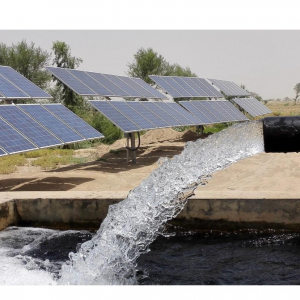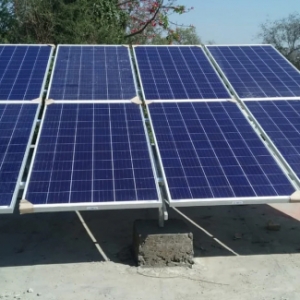Introduction
In an era characterized by increasing concern for the environment and growing demand for sustainable energy solutions, rooftop solar panels have emerged as a game-changer in the realm of residential energy efficiency. These photovoltaic (PV) systems, mounted on the rooftops of homes, harness the power of the sun to generate electricity. This article delves into the numerous advantages of installing rooftop solar panels, focusing on how they contribute to home energy efficiency, financial savings, and environmental sustainability.
Harnessing the Power of the Sun
Rooftop solar panels have the remarkable ability to convert sunlight into electricity through a process known as the photovoltaic effect. Solar cells, typically made of silicon, absorb photons from sunlight, which in turn excites electrons, generating an electric current. This clean and renewable energy source is inexhaustible as long as the sun continues to shine, making it a sustainable solution for homeowners.
Reduced Electricity Bills
One of the most immediate and tangible benefits of installing rooftop solar panels is a significant reduction in electricity bills. By generating your electricity from sunlight, you can offset or even eliminate your reliance on traditional utility providers. The excess energy your solar panels produce can be stored in batteries or fed back into the grid, earning you credits or compensation in some regions through net metering programs. This financial relief can have a substantial impact on your household budget over time.
Return on Investment
While the initial investment in rooftop solar panels can be substantial, it's crucial to view it as a long-term investment rather than an expense. Solar panel systems typically have a lifespan of 25-30 years or more, and they often pay for themselves within 5-10 years through energy savings and government incentives. As utility rates continue to rise, your ROI will only improve, making solar panels a financially sound decision.
Energy Independence
By generating your electricity on-site, you reduce your dependence on fossil fuels and centralized power grids. This newfound energy independence can shield you from the volatility of energy prices and grid failures, ensuring a more stable and reliable source of power for your home. In regions prone to power outages, solar panels equipped with battery storage can provide critical backup power during emergencies.
Environmental Benefits
Installing rooftop solar panels isn't just about saving money; it's also about reducing your carbon footprint. Solar energy is a clean and renewable source of power that produces zero greenhouse gas emissions during operation. By going solar, you contribute to mitigating climate change and preserving the environment for future generations. The environmental benefits of solar panels extend beyond reducing carbon emissions; they also reduce air and water pollution associated with conventional energy generation.
Increased Home Value
Rooftop solar panels can enhance the market value of your home. Studies have shown that properties equipped with solar installations tend to sell faster and at higher prices than those without. Homebuyers are increasingly interested in energy-efficient features, and solar panels are a coveted addition that can boost your home's curb appeal and overall value.
Federal and State Incentives
Governments at both the federal and state levels offer various incentives and tax credits to encourage solar adoption. The federal Investment Tax Credit (ITC) provides a substantial tax break for residential solar installations, reducing the upfront cost of your system. Additionally, many states offer incentives, such as rebates, tax credits, or performance-based incentives, further improving the financial viability of going solar.
Low Maintenance Requirements
Rooftop solar panels are renowned for their durability and low maintenance requirements. They typically come with long warranties and require minimal upkeep over their lifespan. Occasional cleaning and routine inspections to ensure optimal performance are usually all that's needed. This contrasts sharply with fossil fuel-based energy sources, which can be prone to breakdowns and costly maintenance.
Job Creation
The solar industry is a significant driver of job creation. Installing, maintaining, and manufacturing solar panels and associated equipment support a burgeoning workforce. By choosing solar energy for your home, you're not only benefiting personally but also contributing to the growth of the green economy and the creation of sustainable jobs in your community.
Technological Advancements
The solar industry is continually evolving, with ongoing research and development leading to more efficient and cost-effective solar panel technologies. As the technology improves, solar panels become even more attractive, with higher energy yields and reduced costs per watt. This means that homeowners who invest in solar today can expect even greater returns in the future as these advancements become mainstream.
Installing rooftop solar panels represents a forward-thinking investment in both your home and the environment. The numerous benefits, including reduced electricity bills, a solid ROI, energy independence, environmental sustainability, increased home value, government incentives, low maintenance requirements, job creation, and ongoing technological advancements, make solar energy an attractive choice for homeowners.
As the world grapples with the challenges of climate change and the need for sustainable energy sources, residential solar panels offer a tangible and effective solution. By harnessing the power of the sun, homeowners can take a proactive step toward reducing their carbon footprint, saving money, and securing a cleaner and more sustainable future for themselves and generations to come.






